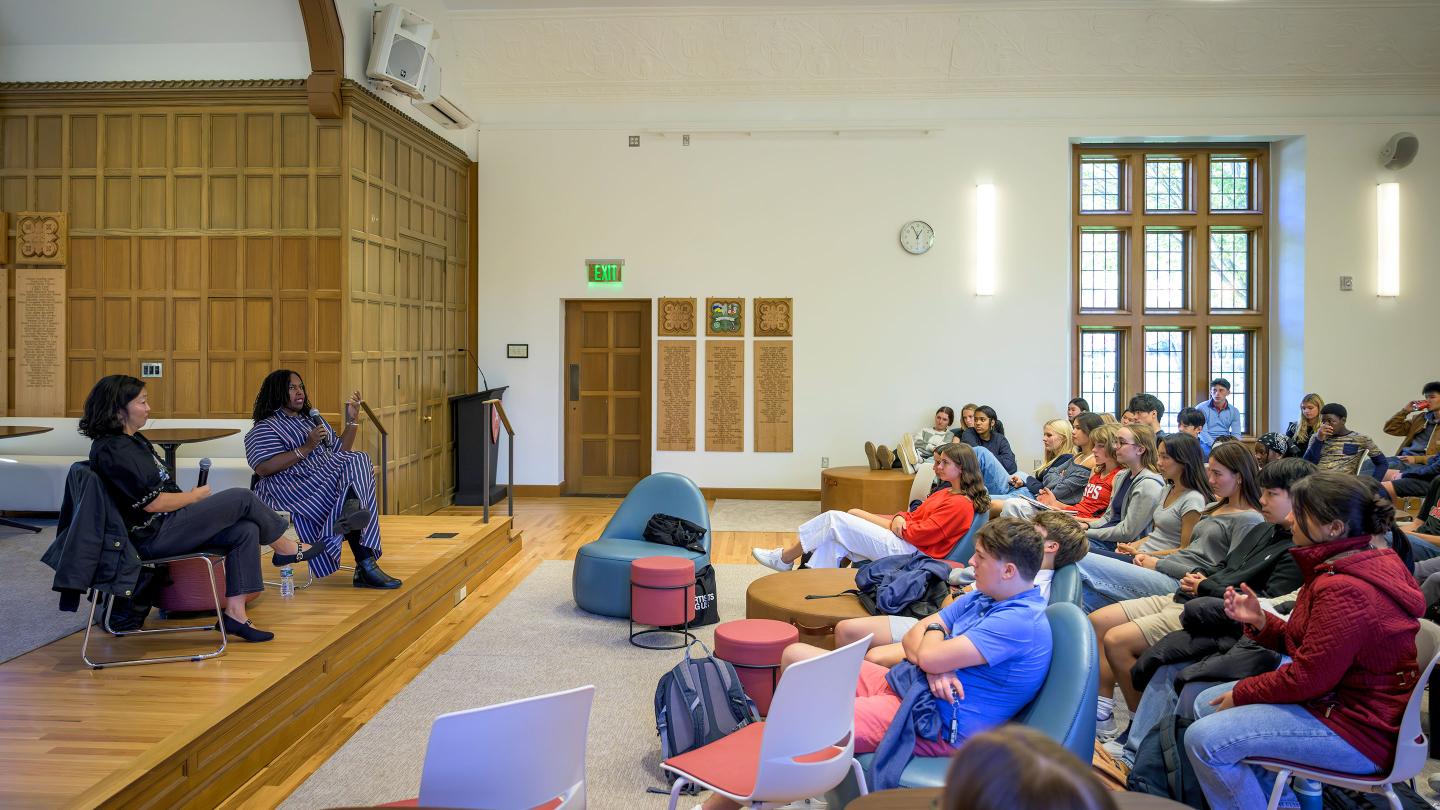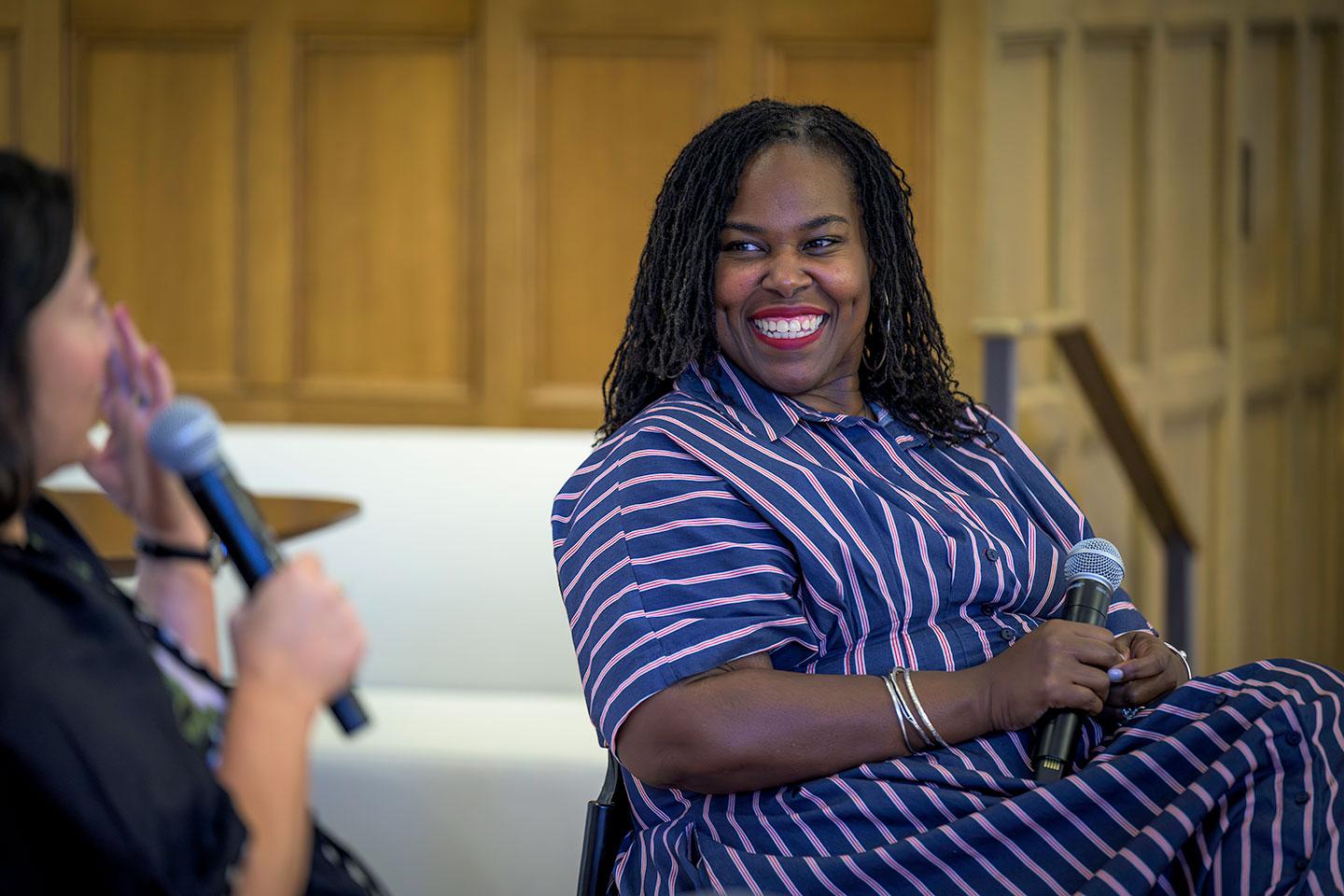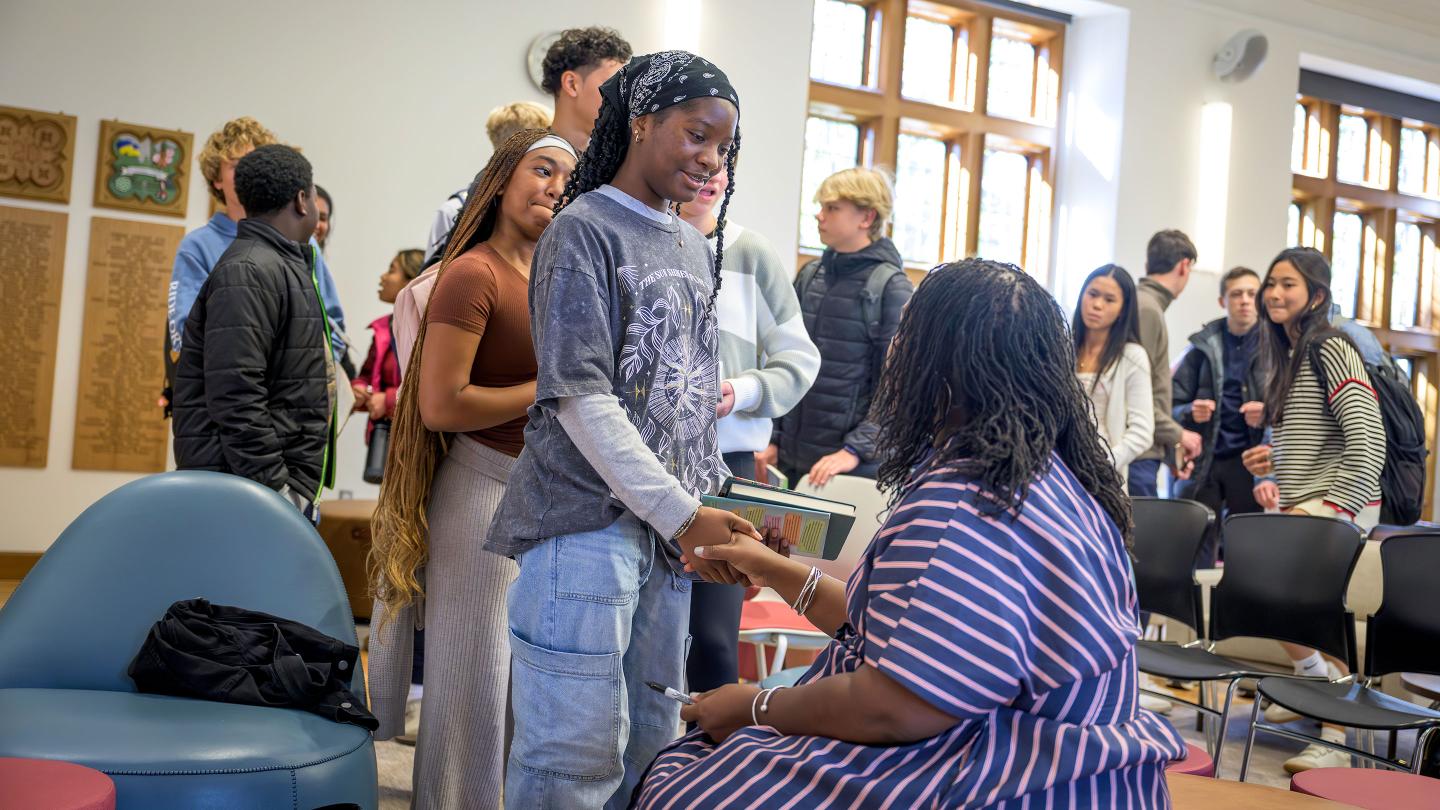How do you decide where your lens is going to fall?
My books are always in conversation with what’s happening in the world and in my life. I want to write to what it seems like there’s no answer for; if I know the answer, then there’s no point for me to be exploring it. I want to write the big questions like Jade is asking: What do you do when you feel like the world is trying to break you? How do you remain whole and not be chipped away at? So, I’m asking that question in that book. I’m asking the question of class and race and interracial friendships, not just dating, that comes up a lot in books, but what is it to have a friend who comes from somewhere else.
And, because I did so much work with young people — as a teaching artist, as a mentor, as an auntie — your stories, your voices, are in my head. So usually, my protagonist is a teenager and that’s why it ends up being YA. But those issues of body image, finding your voice, loving complicated places and complicated people — those things show up over and over in my work. I’m always wondering about how we show up in this world and keep our sanity with all the madness happening around us.
Can you talk a bit about your process of writing “Piecing Me Together?”
Everything I’ve ever written starts with [the following] questions —if you’re a writer, jot this down or keep it in your memory. I interview my main character for every book I write and ask: Who do you love? Who loves you back (because not everybody you love also loves you)? What are you afraid of? What do you want? What is in the way of what you want? When is the last time you cried?
When I know the answers to those questions, I have a plot. I know who the enemies are and who the friends are. I know what this character wants. I know what’s in the way of what she wants. When I get stuck, I go back to those questions and ask, do these answers remain true? Does she still want this? And has it been too easy for her to get? As the writer, you have to be mean to your character by putting them through impossible situations or hard things, or you realize they don’t even want that anymore or don’t need it. So that’s the tug of war in a story — how do I make it hard for my character to get want they want and how can they grow and have some kind of journey?
Could you talk about what’s so problematic about book banning?
Reading is a form of listening. It is taking in someone else’s story. It takes a long time to read a book. You are really giving time to somebody else’s story and that is a sacred thing to do. So, when we say, ‘Don’t read this, this is not allowed,’ we are saying ‘These stories should not be listened to. They don’t matter. You don’t need to listen to these people.’ And that is why it’s problematic. I can listen to something and disagree with it. I can listen to someone and say, ‘Oh, I overlap here. I relate with this, or I don’t.’ But to take away even the possibility of me connecting is the problem for me with book bans. It is important to be open to listening to a variety of stories.
It actually makes me more determined to tell more stories. It motivates me to do the work that my ancestors fought for. My ancestors were enslaved people, and it was illegal for Black people in the United States of America to learn how to read. And here I am writing books. And I think that that in and of itself is a miracle. I know that real blood was shed so that I could be on the stage today, writing books and coming to talk. I feel very responsible that I need to make them proud and do the thing that they fought for. Some of them got to see the fruits of the seeds that they were sowing, but a lot of them had no idea what was coming.
I feel like I have to put my books and my stories out in the world because decades from now, hopefully somebody will look back and ask, ‘Well, what did that lady Renée Watson do when everybody was trying to make Black girls invisible? How did she fight back?’ My fighting back is to tell more stories.
What can you say as a final word about why someone should tell their story?
Nobody can tell your story like you. I won’t say nobody can tell your story; there are always people trying to tell your story. There’s a whole industry that speaks on behalf of young people and says, ‘This is what you want, this is what you care about.’ They think they know you so well. There’s always somebody talking about you thinking they know you. So why not put on record who you really are and tell your own story? That does not mean you want to become a published author and tour the world, but I do think it’s important that your people know who you are. It would be really sad to me if I had a friend my whole life and I didn’t know what things matter to them most.
So, in telling your stories, I want you to think about how you can be authentic in your friendship and just really share who you are and not hide those parts of what you might be afraid to show people. It’s important to show up and be your true self because someone is always trying to tell your story, so you might as well tell it yourself.



